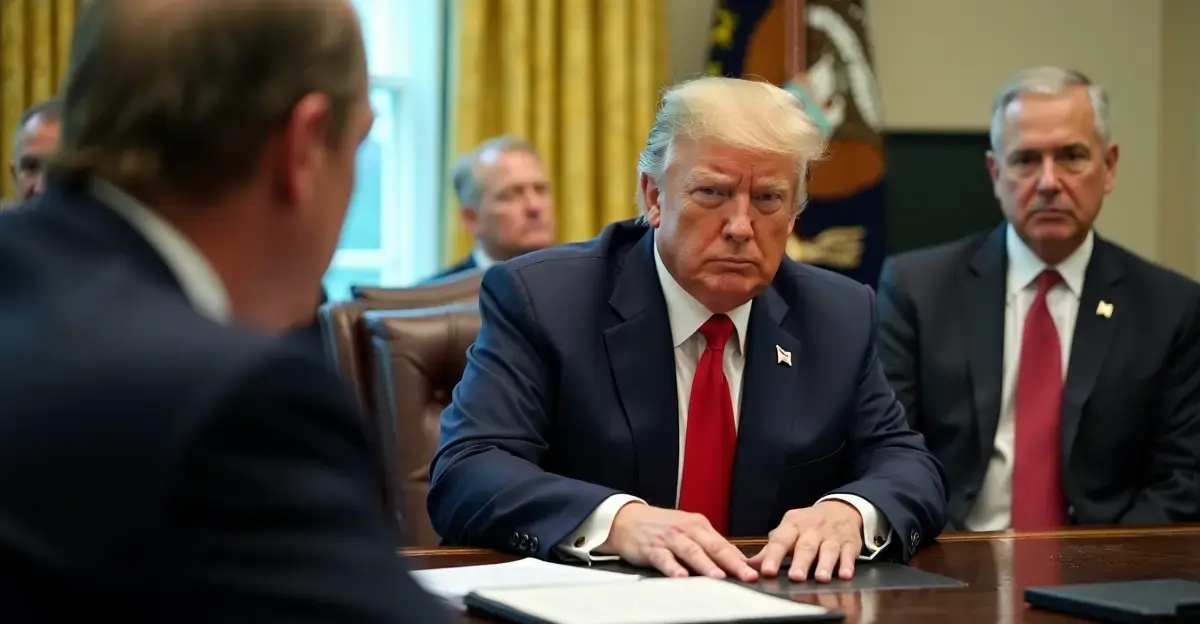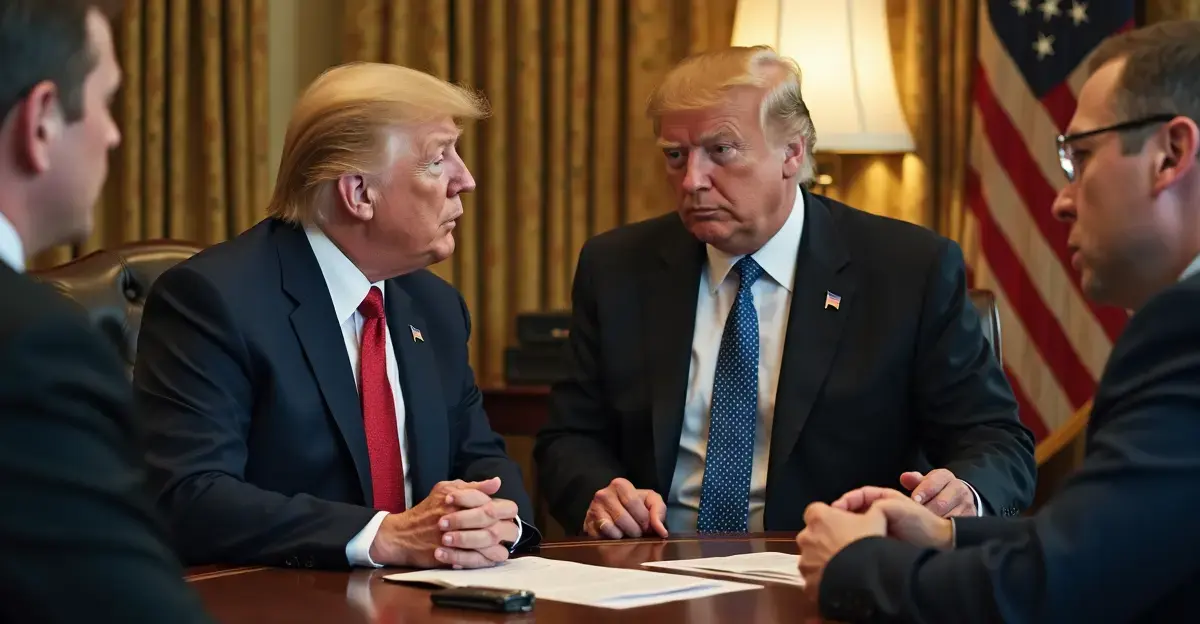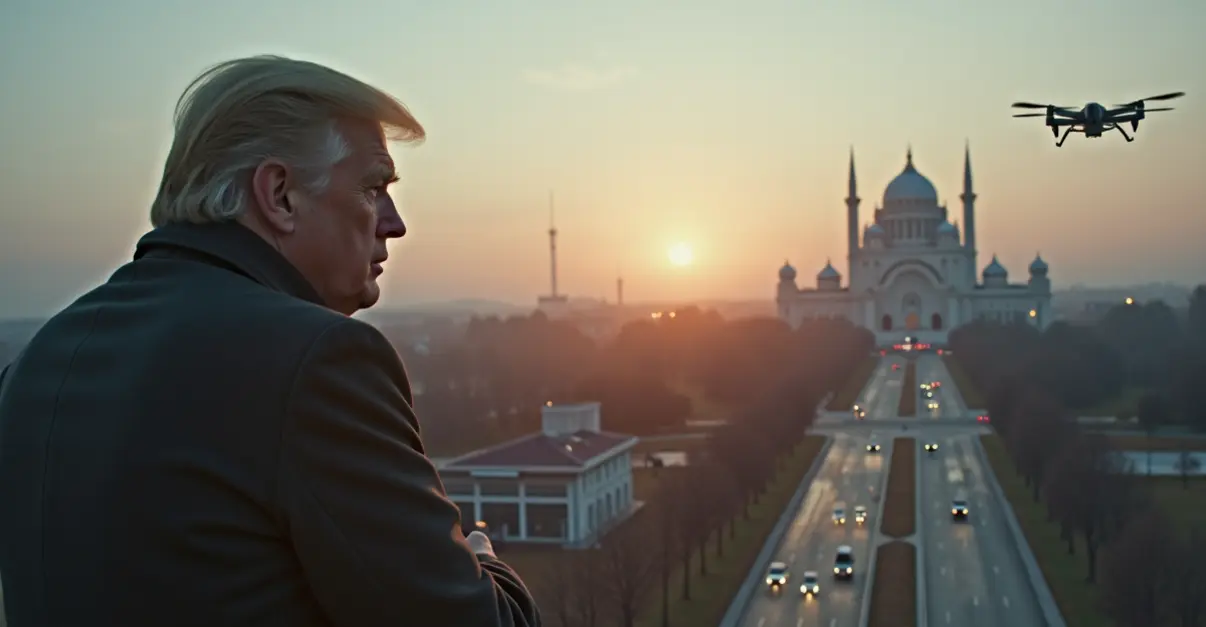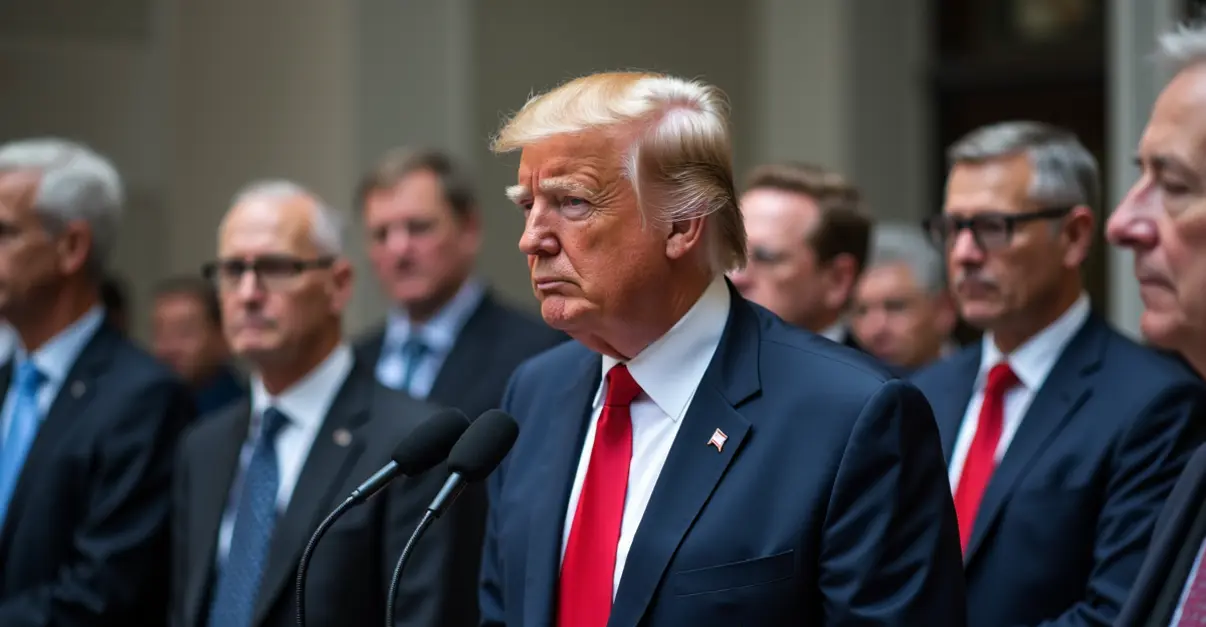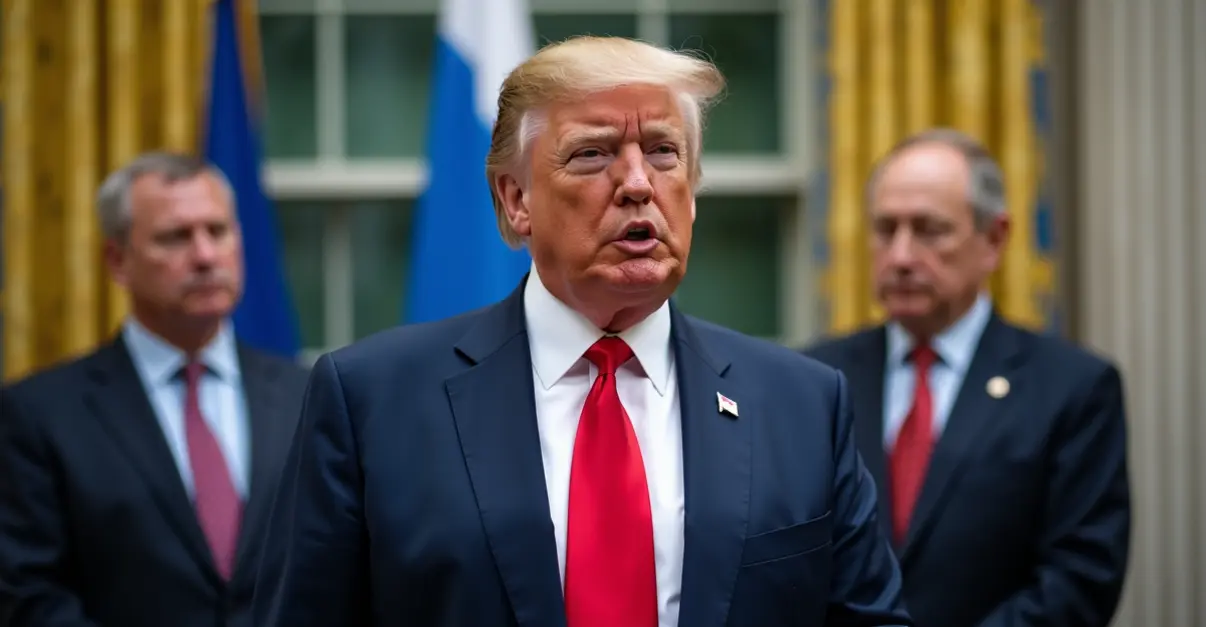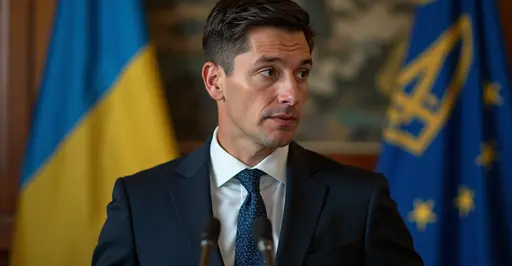Tense White House Meeting Reveals Major Policy Shift
In a dramatic turn of events that has sent shockwaves through international diplomatic circles, President Donald Trump reportedly engaged in a heated confrontation with Ukrainian President Volodymyr Zelensky during their White House meeting on Friday, October 17, 2025. According to multiple sources familiar with the encounter, Trump pressured Zelensky to accept Russian territorial demands and cede significant portions of Ukrainian territory to Moscow.
Shouting Match Over Territory
The meeting, which was intended to discuss military aid and the ongoing war with Russia, quickly deteriorated into what sources described as a 'shouting match' with Trump 'constantly cursing' according to officials who spoke with the Financial Times. Trump reportedly warned Zelensky that Russian President Vladimir Putin would 'destroy Ukraine' if the country didn't cooperate with Moscow's demands.
This confrontation followed Trump's lengthy phone conversation with Putin the previous day, where the Russian leader reportedly proposed a territorial swap that would see Ukraine surrender the Donetsk and Luhansk regions in exchange for smaller portions of Kherson and Zaporizhzhia currently under Russian occupation.
Policy Reversal on Ukraine Support
The tense exchange represents a significant reversal from Trump's position just one month earlier, when he had expressed optimism that Ukraine could win back all Russian-occupied territories with support from the European Union and NATO. In a Truth Social post in September 2025, Trump had stated that Ukraine could 'reclaim all territories occupied by Russia' with proper international backing.
However, following his conversation with Putin, Trump's position shifted dramatically. Speaking to reporters aboard Air Force One, Trump declared that 'Let it be as it is' and suggested that Ukraine and Russia should 'stop at the front line' to end the nearly four-year conflict. This would effectively leave most of the strategically vital Donbas region under Russian control.
Tomahawk Missile Request Denied
Zelensky's visit to Washington was primarily aimed at securing long-range Tomahawk missiles that would enable Ukraine to strike targets deep inside Russian territory. The Tomahawk cruise missile has a range of approximately 2,500 kilometers and travels at speeds of 900 kilometers per hour, making it capable of reaching targets beyond Moscow and St. Petersburg.
However, Vice President JD Vance confirmed that Trump had not decided whether to provide Ukraine with these advanced weapons systems. According to The Hill, Trump explained that providing Tomahawk missiles would not align with 'America's interests' and expressed hope to 'get the war over with, without thinking about Tomahawks.'
International Reactions and Implications
The meeting has raised serious concerns among Ukraine's Western allies about the future of U.S. support for the country's defense against Russian aggression. A senior European diplomat, speaking on condition of anonymity, told reporters that 'This represents a dangerous shift in American foreign policy that could embolden Russian aggression throughout Eastern Europe.'
Meanwhile, Russian officials have welcomed Trump's apparent change in position. Dmitry Medvedev, former Russian president and current deputy chairman of Russia's Security Council, had previously warned that delivering Tomahawk missiles to Ukraine 'could end badly for everyone' and particularly for Trump himself.
The developments come as Trump announced plans to meet with Putin in Budapest, Hungary in the coming weeks, suggesting that a 'double meeting' with both leaders might be the most productive approach to negotiations according to NPR.
Strategic Significance of Donbas
The Donbas region, which includes Donetsk and Luhansk, has been a central battleground in the conflict since 2014. The area represents not only strategic military importance but also contains significant industrial and natural resources. Russia currently controls approximately 70% of the Donetsk region, making Putin's demand for complete control a significant escalation of Russian territorial ambitions.
Ukrainian officials, while acknowledging the likelihood that Russia will retain control of captured territories, have emphasized the need for robust security assurances from Western allies. The current situation represents one of the most critical moments in the conflict since Russia's full-scale invasion in 2022.

 Nederlands
Nederlands
 English
English
 Deutsch
Deutsch
 Français
Français
 Español
Español
 Português
Português
